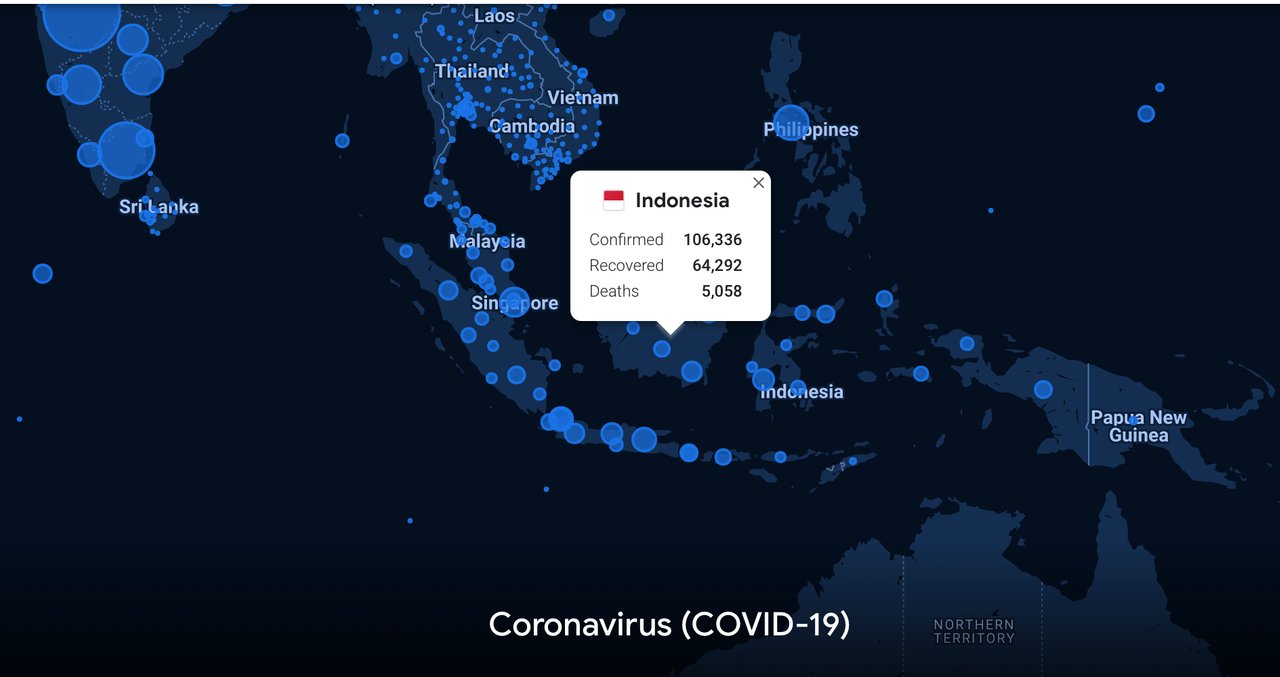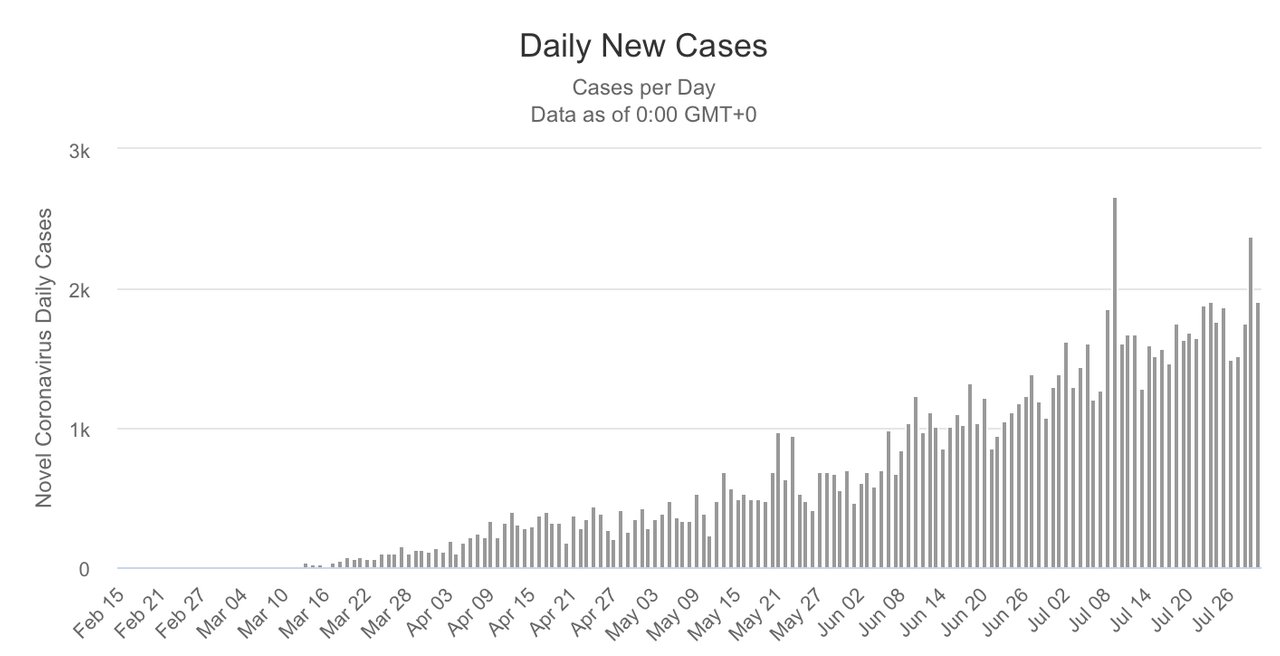The Crisis of Corona Virus in Indonesia - Confirmed COVID-19 cases passes 100,000
Many countries of sounth east asia are again facing serious corona virus 2nd pandemic while many of them have been trying to reopen their economy and make their people lives stable that close the the time before pandemic.
But it seems to be not easy at this moment regarding recent data and trends.
Even as Indonesia passed the milestone of 100,000 confirmed coronavirus cases on Monday, the Widodo administration is pushing ahead with a large-scale reopening of businesses across the country, endangering the lives of millions of workers and their families.
Faced with an ever-growing threat of recession, the Indonesian ruling elite is desperate to keep the economy afloat regardless of the consequences for working people.

Committee for COVID-19 Mitigation and National Economic Recovery
Last week, the government announced the formation of the Committee for COVID-19 Mitigation and National Economic Recovery, a team designed to replace the current coronavirus taskforce.
The team was established with the stated aim of “balancing” the government’s health and economic responses to the pandemic, “in the sense that both be managed under the auspices of a single institution for maximum coordination,” Economic Minister Airlangga Hartanto told the press.
The decision has come under criticism from epidemiologists and commentators for the domination of the team’s membership by corporate representatives that will further prioritise economic recovery over containment of the virus.
Economic Problem
The principal economic problem confronting Indonesia has been financing the budget deficit needed to respond to the massive global downturn. The fiscal response has amounted to $US47.6 billion, largely in the form of stimulus packages to prop up big business, with scarce reserves for health and social welfare.
Such spending, however, has proven inadequate, with Bank Indonesia predicting an economic contraction of between 4 and 4.8 percent in the second quarter. The Finance Ministry, meanwhile, expects the budget deficit to reach 6.3 percent and the economy to shrink by 0.4 percent this year.
The World Bank offered a much less optimistic projection, suggesting output could contract by as much as 3.5 per cent in 2020 and only see a partial recovery in 2021—in other words, remaining around 8 per cent below what it otherwise would have been but for the pandemic.
For Indonesia, an emerging economy that has steadily expanded by about 5 percent a year over the recent period, this would be a disaster. In preparation, the government is increasingly hoping to revive tourism. Investment Minister Luhut Pandjaitan is frantically arranging to reopen major tourist destinations like Bali, Yogyakarta, and Banyuwangi.

Continuous Spreading of Corona Virus
As of yesterday, the country had 102,051 recorded cases and 4,901 deaths, figures which vastly underestimate the real scale of the spread. Indonesia has witnessed over 1,000 new infections daily for 36 consecutive days.
Many deaths are likely going undetected, as both East Java and Jakarta have reported sharp rises in burial rates over the past four months. Suspected COVID-19 deaths—i.e. of patients who were not able to be tested—are not counted in the official death toll.
Moreover, the pandemic has had an equally devastating impact on the social position of the working class. The Indonesian Chamber of Commerce has estimated that more than six million workers have been laid off, as companies struggled to survive through the partial “lockdown.” The worsening social crisis will undoubtedly lead to mounting unrest among workers and peasants.
Source: WSWS
Posted Using LeoFinance